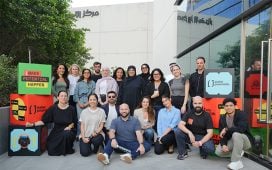While the industry regains its footing following the impact of 2020 across all sectors, marketers and PR professionals are eager to execute a healthy roster of activations and experiences to engage with consumers in a post-pandemic era. As outlined in the Havas Red Sky 2022 Predictions Report, we recognise that consumers across different demographics are looking for deeper and more authentic connections with brands. Delving into a specific segment, it’s critical to understand how, as a product of the times, today’s leading young market drivers – or, as we at Havas call them, ‘prosumers’ – are navigating a challenging post-pandemic world and how businesses can adjust to that change
To continue reading this article you need to be registered with Campaign. Registration is free and only takes a minute. Register Now or sign in below if you already have an account.









